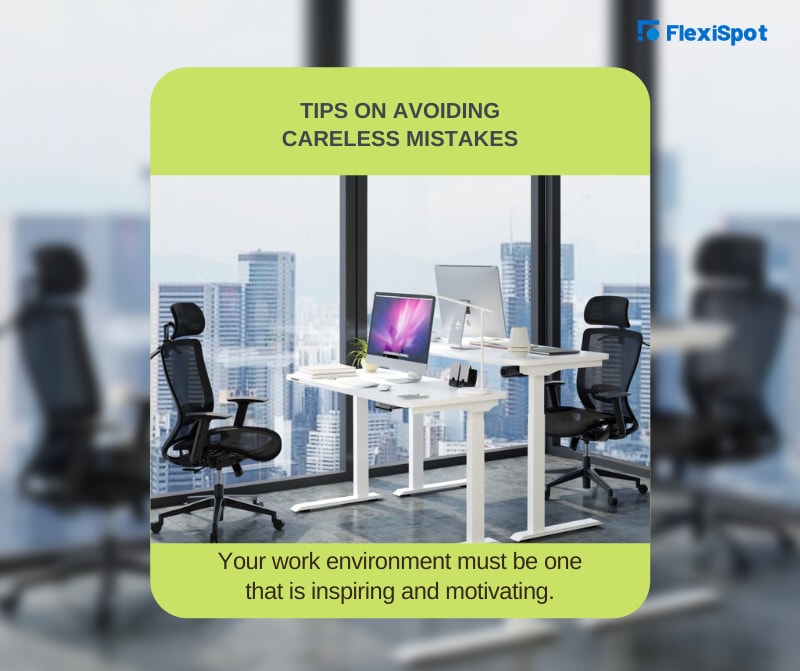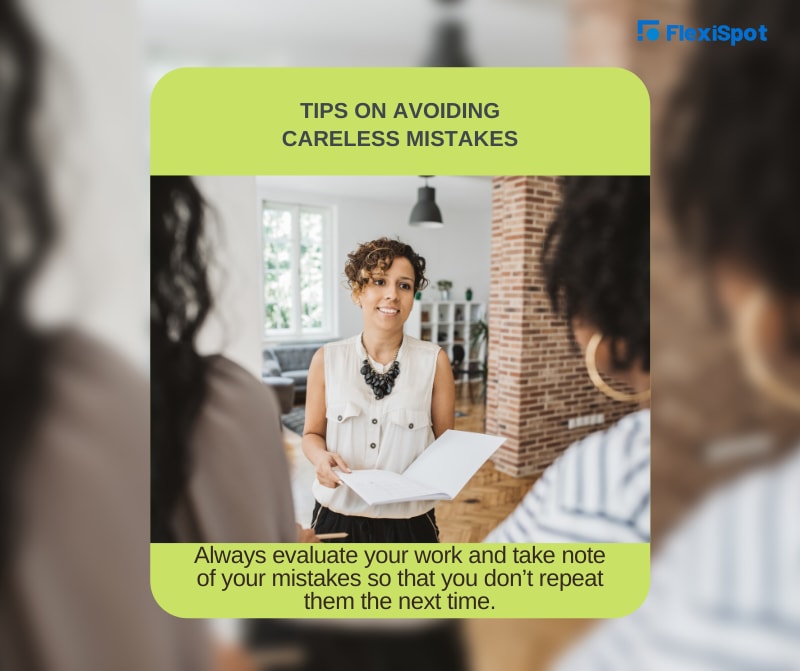One of the traits that companies look for in an employee is if they’re detail-oriented and meticulous. This means that the certain employee would check every little detail about his or their report, presentation, or output before submitting it to the boss. They crosscheck multiple times and make sure that their work is already close to perfection. When you are this kind of employee, and consistent at that, you can expect success in any chosen career. Your clients and bosses must love you very much for always doing your best to submit excellent work. It shows that you are organized, efficient with your time, and makes sure that you don’t submit anything less than perfect.
How do you achieve this? You must learn how to manage your time well so that you are able to make informed decisions and appropriate action. When you are an efficient worker, you get blessed with extra time to review your work before submitting it.
Of course, this is not easy to achieve. Everyone is human, and we all have different personalities. It doesn’t mean, however, that we cannot avoid making careless mistakes—we call them careless because they could have been avoided if you acted with caution and preparation. The goal that you should have is not to be perfect but to make fewer big errors that can jeopardize the company and your name.
It’s helpful to know what these common mistakes are. If you commit it once, of course, it’s easy to forgive, especially if you are just starting out at work. But it’s already inexcusable if you keep repeating the same mistake. This is already a reflection that you are careless and do not think much about your job. You’re probably just concerned about meeting the said deadline. You need to learn from the mistakes of the past and move forward once you’ve corrected these past wrongs.

We should also take into consideration a lot of circumstantial factors. For instance, you can be distracted during your workday, which of course affects the amount of work you’ll be able to finish with flying colors. Or it can be a classic case of declining motivation or an okay mentality. You do not want to be known as someone who just meets deadlines but submits mediocre outputs. Or you have poor time management and get extremely overwhelmed when faced with work tasks, one after another. It can also be simply an indication that you are not suitable for the job. Here are the common errors that employees make across different industries:
People commit grammatical and spelling errors that they do not notice until a colleague points them out.
Miscommunication happens when the wrong information is relayed to a client, a fellow colleague, or a superior.
You did not understand the directive and did a completely different task.
You did not check the recipient and sent an email to the wrong contact.
You forget to acknowledge receipt of emails and more, you are shy.
At some point in the process, you did miscalculations that jeopardized the results. There are instances that the data in the first place is wrong.
You forgot about the task completely.
The deadline is not met for the following reasons: forgot about it, heard the wrong date, or you mismanaged your time.
It’s easy to avoid making these mistakes if you become detail-oriented and efficient. First, you have to figure out what workflow works best for you. This is how you will be able to adjust and adapt that workflow to do your job in the best way possible. You can try different strategies until you find one that allows you to avoid these careless mistakes. Here are some tips on what you can do:
1. Your work environment must be one that is inspiring and motivating.
You have to be inspired to work. When you are happy and fulfilled with what you do every day, the quality of your performance greatly improves because you are encouraged to consistently show up at your best for work. There are many desks that are filled with clutter. While this works for some, it’s not the case for the majority. What a cluttered desk does is fill your mind with unnecessary thoughts that would distract you from focusing on your job. Clear your work desk so that you have a clear headspace as well. If you don’t want to get overwhelmed with clutter, make it a habit to clean your work desk every day before you start working. The clutter won’t accumulate and it will take you less time to clean it. You can also avoid distractions if your work area helps you to stay focused. Use noise-canceling headphones so you are not distracted by what’s happening around you. Hide the gadgets that you don’t need in an area that’s inaccessible. Use ergonomic furniture in your workspace to help stay focused and alert.
2. Do not start a task if one or more instructions are still unclear. Ask questions when something comes up and you are unsure.
The directive must be clear from the very start. You should practice your communication skills and ask when you don’t understand something or need clarification. You should give regular updates as well so that you are on the same page with your manager and client. From time to time, make it a point to discuss your task with them so that you are aligned and are sure that you are doing your job correctly.
It also helps if you know the objectives of the project and the purpose of your task contribution to the totality of it.
3. Always evaluate your work and take note of your mistakes so that you don’t repeat them the next time.
Patience can be exercised in the workplace but it has a thin line. Once you do something wrong over and over again, you should understand why your bosses are raising their eyebrows at you. Take note of your mistakes every time you finish a task. Be aware of any pattern that you might see from these problems. You don’t want to be a nuisance to anyone in your workplace so make sure that you learn from your mistakes in the past and apply the corrections that have to be done, whether it is in your behavior, approach, mindset, etc. Ask help from a mentor if need be.


